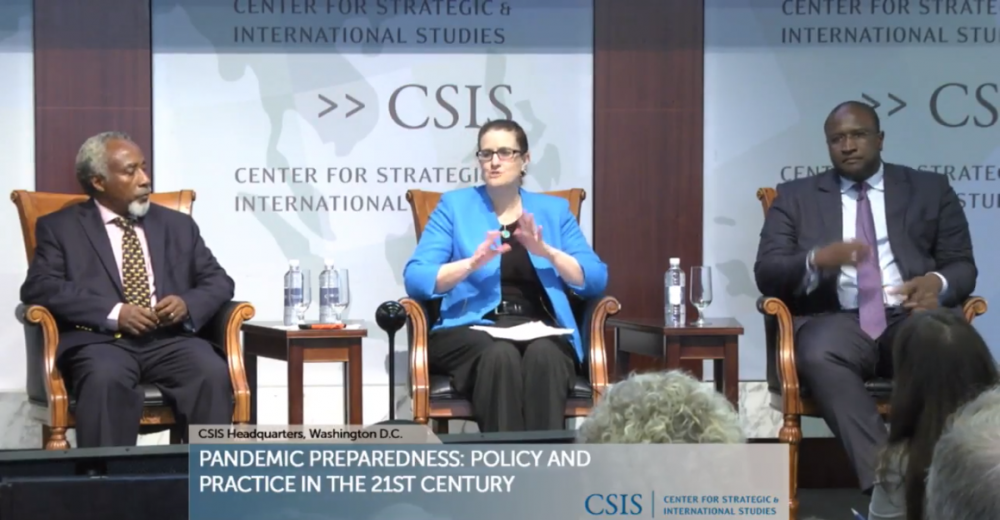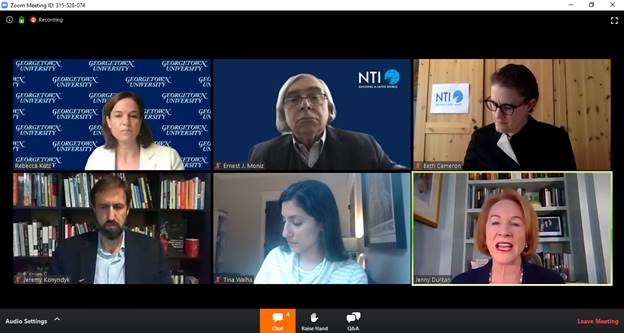
Meaghan Webster
Communications Manager
Atomic Pulse
How well are today’s U.S. and international policies working
to reduce the risk of a 21st century equivalent of the deadly Influenza of 1918?
How do those policies translate into practice in high-risk countries?
Beth Cameron, NTI’s vice president for Global Biological Policy
and Programs, participated in a symposium
on the current state of pandemic preparedness policy hosted by the Center for
Strategic and International Studies (CSIS) earlier this month.
The symposium (a
video of which can be found here) began
with a keynote address by Luciana Borio, director of Medical & Biodefense
Preparedness Policy at the U.S. National Security Council, who emphasized that
while many global health policy challenges remain, “the world is doing
dramatically better” and “we should celebrate” the global health community’s
achievements.
Cameron moderated a panel discussion, “Policy in Practice,”
between David Heymann, head and senior fellow at Chatham House’s Centre on
Global Health Security; Andrew Kitua, Africa regional director of the USAID
Preparedness & Response project; and Amadou Sall, CEO of the Institut
Pasteur – Dakar.
When asked about their biggest global health policy
challenges, Sall described the difficulty of building sustainability with
health security infrastructure, as major changes like urbanization happen over
time. Kitua echoed that sentiment and added that it is hard to convince colleagues
to invest in prevention of global health threats ahead of time, as opposed to
waiting and reacting, which seems to be the norm.
So are we more prepared for Ebola now than we were during
the original outbreak?
Sall was encouraging, noting that officials now can detect
and confirm a diagnosis in the same day, when previously, such a process could
take multiple days. However, reacting to a new outbreak “is a process,” Sall
said, and “there are still gaps” in the response.
“What do we do when there will be situations we can’t
foresee or prevent?” Cameron asked.
“If there is good coordination at the country level,” Kitua
noted, officials will be “better conduits for resources.”
Cameron concluded the panel with one final important
question: How important is global leadership and leadership from the U.S. in
putting global health policy into practice?
“It’s extremely important for driving the agenda,” Sall
answered.
Learn more about NTI’s work on global health security issues
here.
Sign up for our newsletter to get the latest on nuclear and biological threats.
Examples from around the world of the Global Health Security Index in-use.
NTI Seminar: Dr. Margaret Hamburg on COVID-19 Vaccines, Therapeutics, and the Biosecurity Nexus
NTI I bio works with others to develop local resource for COVID-19 response



